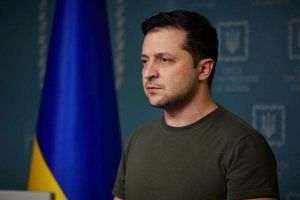We are going through a period where, like never before, the non-banking financial markets are in turmoil and there are few people who remember April 30, 2013 when the Romanian Financial Oversight Authority was created. Uniting three former regulators (The CNVM - Romanian Securities Commission, the Insurance Oversight Commission, and the Private Pensions Oversight Commission), which were being plagued by evidence of ineffectiveness and even corruption, the new Authority represented for the aforementioned three markets, the sign of a new European approach, when it comes to regulation, authorization and control. Unfortunately, this praiseworthy decision of the Ponta government started off with serious problems in the insurance sector which climaxed with the replacement of the first president of the ASF, as well as with a necessary restructuring of the Board of Directors of the ASF and of the specialized departments. That role was filled by the second president, Mişu Negriţoiu, who succeeded in helping the needs of the market through projects at the level of the three business sectors. Unfortunately, he was the first victim of the political decision of a former minister, Mihai Tudose, upset that Mişu Negriţoiu did not promote someone he was endorsing. Unfortunately, every program initiated by Mişu Negriţoiu was ruined under the presidency of the third ASF president, Leonard Badea, an infamous period in the history of the ASF and of the non-banking financial markets, characterized by a complete lack of transparency, fear of making decisions and a hiring policy which brought a large number of non-specialists within the Authority, usually politicians' relatives and friends, hidden away in various departments that had nothing to do with the main activity of the ASF. That's how things have come to the pathetic point where over 50% of the employees of the ASF don't work in the specialized divisions: capital market, private pensions and insurance. Besides, not even the members of the ASF Council are qualified to justify their positions, wherein they have been appointed by the Dragnea, Vâlcov, Socol trio. The mere flowchart of the employees of the ASF shows (I don't know why the organizational structure and the names of all the employees aren't published) kinship, friendships and relationships to politicians, turning the ASF into a politically independent institution, financed by market players regulated and authorized by the ASF, into an institution submissive to the PSD.
Unfortunately, he was the victim of the political decision of a former prime minister, Mihai Tudose, upset that Mişu Negriţoiu did not promote a person he supported. Unfortunately, all the programs initiated by Mişu Negriţoiu were crushed under the presidency of the third president of ASF, Leonard Badea, a sad period in the life of ASF and non-banking financial markets, characterized by total lack of transparency, fear of decision and personnel policy. by bringing to the Authority a plethora of non-specialists, usually relatives and friends of politicians, hidden inside all sorts of departments that did not fall within the main object of activity of the FSA. This has led to a sad situation in which over 50% of ASF employees do not work in specialized sectors: capital markets, private pensions and insurance. Moreover, the members of the ASF Council do not justify by their activity the quality in which they were appointed by the Dragnea, Vâlcov, Socol trio. The simple flowchart of the employees of ASF shows (I don't know why the organization chart and the name of each employee are not published) the kinships, friendships and relationships with politicians, transforming ASF from a politically independent institution, financed by market actors supervised and authorized by ASF, in an institution obedient to the PSD.
In all the programs that ASF carried out in the period 2013-2018, decision-making transparency was a requirement for the market entities, which were required to periodically report their decisions, financial statements or to present any event concerning their operation. Unfortunately, the most opaque institution is the Authority itself, which in the last year and a half has only had sporadic appearances, as the members of the Council have not attended Conferences and debates, and have worked on regulations in secret, without consulting market entities or blindly endorsing regulations that harmed the market, as was the case of the "late" Government Emergency Ordinance no. 14/2018.
If, when it comes to the High Court of Cassation and Justice how everyone voted is reported, together with the justification for each vote, the ASF continues to prohibit the disclosure of how each member of the Council voted, and why. In fact, all the so-called information security measures implemented by the ASF since the arrival of Leonard Badea have been nothing else but ways of hiding truths.
Therefore, seven years after the establishment of the FSA, we are witnessing the existence of an inert authority when it comes to the European programs, non-transparent, with inappropriate practices, serving as a refuge for many unprofessional employees, in one word, ineffective. Add to that dithering and postponement when it came to making - often biased - decisions, we come to the natural conclusion that in June, at the presentation of the ASF report for the year 2019 in the specialized committees of Parliament, we will have, for the first time in the history of the ASF and the former regulators, a negative evaluation leading to a mass resignation of the members of the ASF Council, to a notification of the Court of Auditors regarding the spending of the institution's revenues and even to the DIICOT for many cases which the media and market entities have reported on.
Although one of the options used to solve the problems that gum up the works at the ASF, was its very dissolution of ASF and the creation of two authorities according to the existing model in the European Union (one authority for the capital market subordinated to the ESMA and another for insurance and private pensions under EIOPA coordination), the underlying problem lies elsewhere, with the ASF Council or of the future Councils, should this two-council proposal be implemented.
The recent legislative initiative which prevents people without experience, expertise and qualifications entering the management of the ASF seems to solve the issue. But I think that no matter what option were chosen, the representatives of professional associations of the stock market, insurance and private pensions sector need to find their place in the management structure of the Authority.
But the most important change I see necessary for the structure of the ASF is to rethink the directions and services to favor those strictly related to authorization, control, supervision and regulation, but also to trim down the number of the employees to the bare minimum.
However, it is fundamental for the way of working between the members of the ASF Council and its specialized departments to change. Specifically, the current procedure at the ASF is that the department and divisions analyze reports and then submit proposals to the ASF Council based on those reports, so that the incompetent people in the Council hide behind those proposals, with lack of qualification going hand in with the cowardice and the fear of making decisions. Therefore, it is imperative that in the future the specialized departments analyze and draft reports, summaries, notes in accordance with the legislation in effect, practically making an x-ray of the case (control, authorizations, etc.) without making any proposal. The decision must be the exclusive prerogative of the members of the ASF Council and not a way to justify it using the proposal of the departments.
Seven years after the establishment of the ASF, a generous project which the market players accepted as necessary has been slowly led to its death over the last year and a half by a team of incompetent individuals.



















































